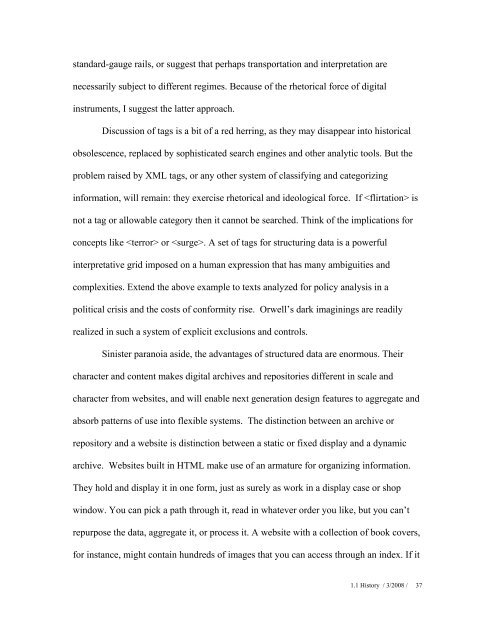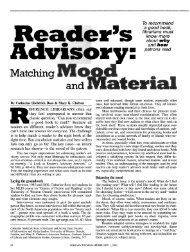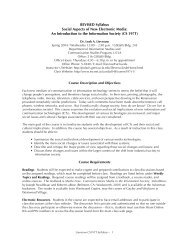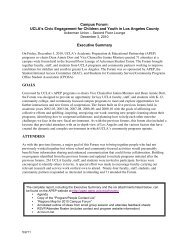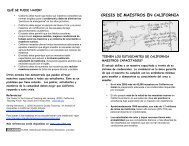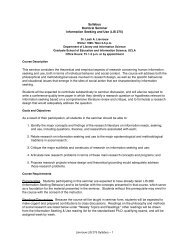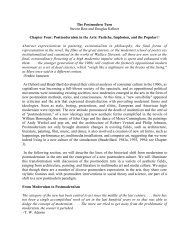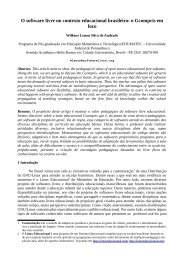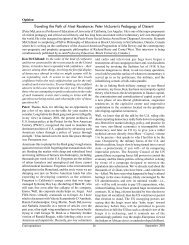1.1 From Digital Humanities to Speculative Computing - UCLA ...
1.1 From Digital Humanities to Speculative Computing - UCLA ...
1.1 From Digital Humanities to Speculative Computing - UCLA ...
You also want an ePaper? Increase the reach of your titles
YUMPU automatically turns print PDFs into web optimized ePapers that Google loves.
standard-gauge rails, or suggest that perhaps transportation and interpretation are<br />
necessarily subject <strong>to</strong> different regimes. Because of the rhe<strong>to</strong>rical force of digital<br />
instruments, I suggest the latter approach.<br />
Discussion of tags is a bit of a red herring, as they may disappear in<strong>to</strong> his<strong>to</strong>rical<br />
obsolescence, replaced by sophisticated search engines and other analytic <strong>to</strong>ols. But the<br />
problem raised by XML tags, or any other system of classifying and categorizing<br />
information, will remain: they exercise rhe<strong>to</strong>rical and ideological force. If is<br />
not a tag or allowable category then it cannot be searched. Think of the implications for<br />
concepts like or . A set of tags for structuring data is a powerful<br />
interpretative grid imposed on a human expression that has many ambiguities and<br />
complexities. Extend the above example <strong>to</strong> texts analyzed for policy analysis in a<br />
political crisis and the costs of conformity rise. Orwell’s dark imaginings are readily<br />
realized in such a system of explicit exclusions and controls.<br />
Sinister paranoia aside, the advantages of structured data are enormous. Their<br />
character and content makes digital archives and reposi<strong>to</strong>ries different in scale and<br />
character from websites, and will enable next generation design features <strong>to</strong> aggregate and<br />
absorb patterns of use in<strong>to</strong> flexible systems. The distinction between an archive or<br />
reposi<strong>to</strong>ry and a website is distinction between a static or fixed display and a dynamic<br />
archive. Websites built in HTML make use of an armature for organizing information.<br />
They hold and display it in one form, just as surely as work in a display case or shop<br />
window. You can pick a path through it, read in whatever order you like, but you can’t<br />
repurpose the data, aggregate it, or process it. A website with a collection of book covers,<br />
for instance, might contain hundreds of images that you can access through an index. If it<br />
<strong>1.1</strong> His<strong>to</strong>ry / 3/2008 /<br />
37


